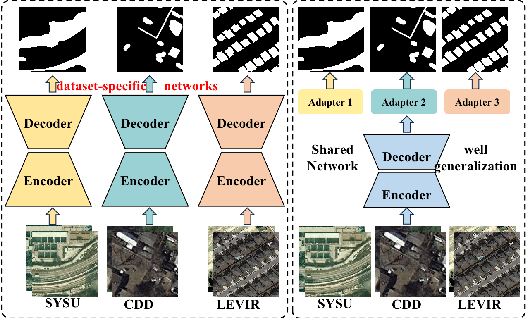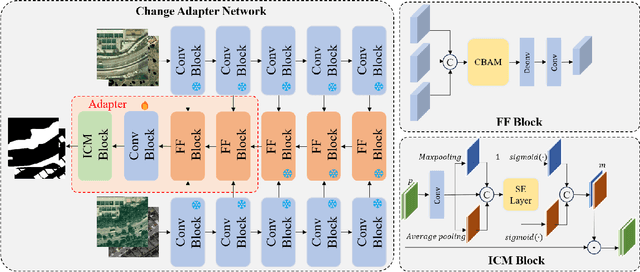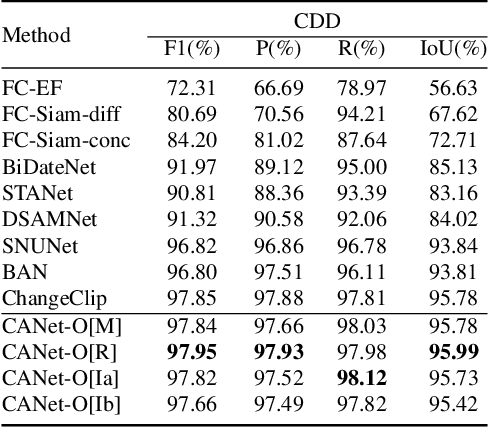Ning Huyan
CLNet: Cross-View Correspondence Makes a Stronger Geo-Localizationer
Dec 16, 2025Abstract:Image retrieval-based cross-view geo-localization (IRCVGL) aims to match images captured from significantly different viewpoints, such as satellite and street-level images. Existing methods predominantly rely on learning robust global representations or implicit feature alignment, which often fail to model explicit spatial correspondences crucial for accurate localization. In this work, we propose a novel correspondence-aware feature refinement framework, termed CLNet, that explicitly bridges the semantic and geometric gaps between different views. CLNet decomposes the view alignment process into three learnable and complementary modules: a Neural Correspondence Map (NCM) that spatially aligns cross-view features via latent correspondence fields; a Nonlinear Embedding Converter (NEC) that remaps features across perspectives using an MLP-based transformation; and a Global Feature Recalibration (GFR) module that reweights informative feature channels guided by learned spatial cues. The proposed CLNet can jointly capture both high-level semantics and fine-grained alignments. Extensive experiments on four public benchmarks, CVUSA, CVACT, VIGOR, and University-1652, demonstrate that our proposed CLNet achieves state-of-the-art performance while offering better interpretability and generalizability.
Lightweight Adapter Learning for More Generalized Remote Sensing Change Detection
Apr 28, 2025



Abstract:Deep learning methods have shown promising performances in remote sensing image change detection (CD). However, existing methods usually train a dataset-specific deep network for each dataset. Due to the significant differences in the data distribution and labeling between various datasets, the trained dataset-specific deep network has poor generalization performances on other datasets. To solve this problem, this paper proposes a change adapter network (CANet) for a more universal and generalized CD. CANet contains dataset-shared and dataset-specific learning modules. The former explores the discriminative features of images, and the latter designs a lightweight adapter model, to deal with the characteristics of different datasets in data distribution and labeling. The lightweight adapter can quickly generalize the deep network for new CD tasks with a small computation cost. Specifically, this paper proposes an interesting change region mask (ICM) in the adapter, which can adaptively focus on interested change objects and decrease the influence of labeling differences in various datasets. Moreover, CANet adopts a unique batch normalization layer for each dataset to deal with data distribution differences. Compared with existing deep learning methods, CANet can achieve satisfactory CD performances on various datasets simultaneously. Experimental results on several public datasets have verified the effectiveness and advantages of the proposed CANet on CD. CANet has a stronger generalization ability, smaller training costs (merely updating 4.1%-7.7% parameters), and better performances under limited training datasets than other deep learning methods, which also can be flexibly inserted with existing deep models.
Unsupervised Outlier Detection using Memory and Contrastive Learning
Jul 27, 2021



Abstract:Outlier detection is one of the most important processes taken to create good, reliable data in machine learning. The most methods of outlier detection leverage an auxiliary reconstruction task by assuming that outliers are more difficult to be recovered than normal samples (inliers). However, it is not always true, especially for auto-encoder (AE) based models. They may recover certain outliers even outliers are not in the training data, because they do not constrain the feature learning. Instead, we think outlier detection can be done in the feature space by measuring the feature distance between outliers and inliers. We then propose a framework, MCOD, using a memory module and a contrastive learning module. The memory module constrains the consistency of features, which represent the normal data. The contrastive learning module learns more discriminating features, which boosts the distinction between outliers and inliers. Extensive experiments on four benchmark datasets show that our proposed MCOD achieves a considerable performance and outperforms nine state-of-the-art methods.
 Add to Chrome
Add to Chrome Add to Firefox
Add to Firefox Add to Edge
Add to Edge